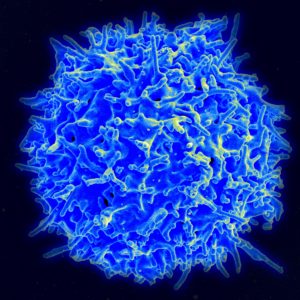Beginning in 2016, the aim of this study was to establish the role of T cells and the immune system in ME/CFS by examining the genetic material in T cells – immune cells that identify and kill infected cells.
No notable results were identified from this specific approach. Therefore, this project is no longer a focus for these investigators.
STUDY HYPOTHESIS AND DESCRIPTION
The rationale is that aspects of of genetic material in these cells can inform whether they are actively fighting an infection and potentially what the cause of the infection is.
Many studies have shown that the immune system is affected in ME/CFS patients, e.g., low activity of NK cells, altered levels of cytokines (signaling molecules of the immune system), and the likelihood of a microbial infection preceding the illness. None of these studies are yet to implicate T cells or define their activity in ME/CFS patients.
OBJECTIVES
 The investigation of the immunological basis of ME/CFS will have several parts that overall will help determine if ME/CFS is an autoimmune disease and what immune factors may be triggering ME/CFS or sustaining it as a chronic disease.
The investigation of the immunological basis of ME/CFS will have several parts that overall will help determine if ME/CFS is an autoimmune disease and what immune factors may be triggering ME/CFS or sustaining it as a chronic disease.
Dr. Mark Davis’ team is investigating the clonal expansion of T cells in ME/CFS, including what they might be targeting – viruses, bacteria, or self (autoimmune).
Dr. Ron Davis’ team has invented a highly accurate, cost-effective method for HLA gene sequencing and a very sensitive method for detecting viral DNA as a sign of viral infections, which he is using in this project.
Dr. Lars Steinmetz’ team has developed effective methods for sequencing RNA from single T cells, which they are using to understand how T cell behavior may be different in ME/CFS.
What are the advantages of giving from your Donor Advised Fund (DAF)?
How do I make a donation through my DAF?
Just click on the DAF widget below. It is simple and convenient to find your fund among the over 900 funds in our system.
Still can’t find your fund?
Gifting of Stock
Broker: Schwab
DTC #: 0164
Account #: 47083887
Account Registered as:
Open Medicine Foundation
29302 Laro Drive
Agoura Hills, CA 91301
Please speak to your personal tax advisor and then email or call OMF at 650-242-8669 to notify us of your donation or with any questions.